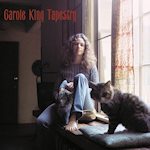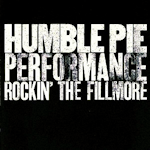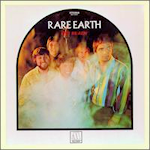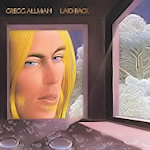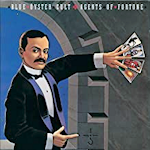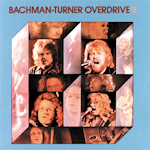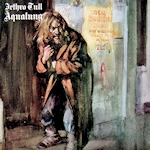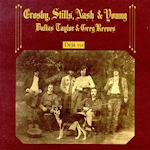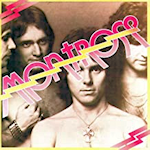
The self-titled album "Montrose" by the band Montrose was released in 1973. Montrose was an American rock band formed by guitarist Ronnie Montrose and featuring lead vocalist Sammy Hagar, bassist Bill Church, and drummer Denny Carmassi. The album is often regarded as a classic in the hard rock genre and is considered one of the band's most influential works.
"Montrose" is known for its energetic and heavy sound, blending elements of hard rock, blues, and early heavy metal. The album's production was handled by Ted Templeman, who had previously worked with bands like Van Morrison and The Doobie Brothers, and the result was a raw and powerful sound that became a blueprint for many subsequent hard rock bands.
The album kicks off with the iconic track "Rock the Nation," which immediately grabs the listener's attention with its driving guitar riffs and Hagar's powerful vocals. Other notable tracks on the album include "Bad Motor Scooter," a high-energy rocker that became one of Montrose's signature songs, and "Space Station #5," a song characterized by its heavy guitar riff and memorable chorus.
"Montrose" received positive reviews upon its release and has since become a cult favorite among rock enthusiasts. It showcased the impressive guitar skills of Ronnie Montrose, who was known for his innovative playing style and precise execution. Sammy Hagar's vocals also stood out, displaying his range and ability to deliver energetic and passionate performances.
Track by track:
- Rock the Nation:
- Overview: The opening track sets the tone for the entire album with its explosive energy. The driving guitar riffs by Ronnie Montrose are immediately attention-grabbing, and Sammy Hagar's vocals soar with power and charisma. The rhythm section, comprised of Bill Church on bass and Denny Carmassi on drums, provides a solid foundation for the relentless pace of the song.
- Highlights: The anthemic chorus and Montrose's dynamic guitar solo showcase the band's ability to craft memorable hooks and exhibit instrumental prowess.
- Bad Motor Scooter:
- Overview: This track is a standout with its bluesy undertones and infectious rhythm. Hagar's vocals are gritty and passionate, and Montrose's guitar work, especially the iconic opening riff, is instantly recognizable. The song's lyrics and overall vibe exude a rebellious and carefree spirit.
- Highlights: The slide guitar elements and the energetic interplay between vocals and instrumentation contribute to the song's enduring appeal.
- Space Station #5:
- Overview: This epic track is a journey through different musical landscapes. Starting with a spacey intro, it transitions into a heavy, riff-driven section. The song showcases Montrose's ability to seamlessly blend different musical elements, from progressive rock to hard-hitting metal.
- Highlights: The extended guitar solo in the latter part of the song is a highlight, demonstrating Montrose's technical skill and innovative approach to the instrument.
- I Don't Want It:
- Overview: This track maintains the album's high energy, with a driving rhythm and powerful vocals. The lyrics convey a sense of rebellion and a rejection of conformity, fitting well with the overall theme of the album.
- Highlights: The catchy chorus and the tight musical interplay between all band members contribute to the song's effectiveness.
- Good Rockin' Tonight:
- Overview: A cover of the classic rock and roll song, Montrose infuses their signature style into this track. It's a straightforward, high-energy piece that pays homage to the roots of rock while incorporating the band's distinctive sound.
- Highlights: The band's interpretation of the classic song is both respectful and inventive, showcasing their ability to put a unique spin on well-known material.
- Rock Candy:
- Overview: This song is a hard-hitting, riff-heavy piece that exemplifies the band's knack for crafting memorable rock tunes. It features dynamic shifts in tempo and showcases Montrose's guitar virtuosity.
- Highlights: The relentless guitar riff and the interplay between the instruments create a sense of urgency and excitement throughout the track.
- One Thing on My Mind:
- Overview: This track slows down the tempo a bit, offering a bluesy and soulful vibe. Sammy Hagar's vocals shine with emotion, and Ronnie Montrose's guitar work continues to be a driving force. The song explores a more reflective and introspective mood compared to the high-energy tracks preceding it.
- Highlights: The emotive vocal delivery and the expressive guitar solos contribute to the song's depth and make it a standout in the album's lineup.
- Make It Last:
- Overview: Closing the album, "Make It Last" is a dynamic and multifaceted piece that showcases the band's ability to create intricate compositions. It starts with a melodic and almost ballad-like section before escalating into a powerful rock anthem. The song encapsulates the overall versatility of Montrose as a band.
- Highlights: The transitions between the softer and heavier sections, along with the compelling lyrics, make "Make It Last" a fitting conclusion to the album. Ronnie Montrose's guitar work, as always, is a highlight.
In summary, "Montrose" is a cohesive album that showcases the band's prowess in crafting energetic, riff-driven rock music. Each track contributes to the overall sonic journey, with memorable hooks, powerful vocals, and outstanding instrumental performances.
Despite its critical acclaim, the album did not achieve significant commercial success upon its initial release. However, over time, it gained a strong following and is now recognized as a classic album in the hard rock genre. It influenced many musicians and bands, including Van Halen, who later recruited Sammy Hagar as their lead vocalist.
Montrose genealogy and discographyExplore Montrose music on Amazon...

